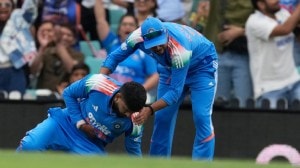States to discuss negative services list on Jan 9
The Empowered Committee of state finance ministers chaired by Sushil Modi will discuss the negative list of services when it meets in Bhopal on January 9. The negative list specifies those services which would be exempt from the tax
The Empowered Committee of state finance ministers chaired by Sushil Modi will discuss the negative list of services when it meets in Bhopal on January 9. The negative list specifies those services which would be exempt from the tax.
A draft negative list exempts 21 including interest paid on dividends on shares,funeral and burial services and passengers in public transport.
The empowered committee under Sushil Modi,the deputy chief minister of Bihar,will also discuss the states demand for increasing profession tax and grant of pending compensation for forgoing central sales tax (CST).
The CST,a tax on inter-state movement of goods,was reduced from 4 per cent to 3 per cent in 2007-08,and further to 2 per cent in 2008-09 after the introduction of the value added tax regime.
Earlier,the Union finance ministry had asked the empowered committee to submit its views on the negative list of services prepared by the ministry.
The committee had sought time till January and had formed a sub group of commissioners to discuss and understand the issues in levying service tax and the import of a negative list.
Currently,a service tax of 10 per cent is levied by the Centre on 117 services. However,the proposed Goods and Service Tax (GST) envisages to give states the power to tax services. States are allowed to tax goods while the Centre taxes the goods at the factory gate.
The Centre proposes to introduce the concept of negative list for services which essentially means that except a small list of services,all other services would be taxed by the government both states and the Centre once GST comes in place.
Few states have also asked for increasing the profession tax provided for in the Constitution,List II Entry 60 beyond the current Rs 2,500 per annum. The tax,leviable by a state legislature,is payable on professions,trades,callings and employment.
At present,West Bengal,Karnataka,Maharashtra,Andhra Pradesh,Gujarat,Tamil Nadu and Madhya Pradesh levy the profession tax.
The EC will take up the contentious issue of CST compensation too in its January 9 meeting. Modi had earlier claimed that this may jeopardise the chances of implementing GST. The finance ministry has decided to pay only Rs 6,000 crore for 2010-11 as compensation to states for losses incurred due to the reduction of CST. The government provided Rs 12,000 crore in Budget 2011-12.
According to an official in the finance ministry,states had raised value-added tax (VAT) rate for merit goods from 4 per cent to 5 per cent and thus generated more revenue.
As part of the arrangement with the states,we have told them that we would deduct the CST compensation amount after they increase the lower VAT rate, an official said.
A disappointed Modi had said that VAT is the prerogative of states and this should not be linked with CST compensation.



- 01
- 02
- 03
- 04
- 05




























